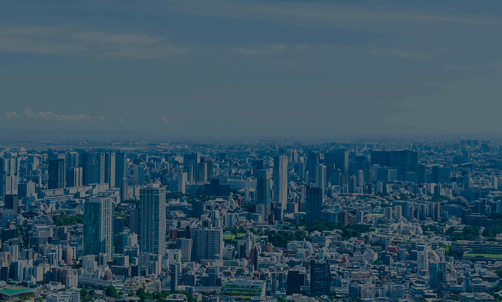- Home
- Sustainability Report
- Mitsubishi Materials Group's Initiatives on Material Issues
- Consideration of human rights in the supply chain
Enhancement of Sustainable Supply Chain Management
Consideration of Human Rights in the Supply Chain
Responsible Procurement of Raw Materials
| Purpose of activities | Activities during FYE March 2023 | Self- assessment |
Targets/plans for activities FYE March 2024 onwards |
|---|---|---|---|
|
|
B |
|
|
|
A |
|
Self-assessment grades A: Target achieved B: Target mostly achieved C: Target not achieved
Basic Approach
As a comprehensive materials manufacturer, we promote partnership and coexistence with a wide range of suppliers throughout the value chain to improve added value. We also actively develop global procurement activities with the aim of stable product supplies and more competitive products.
As stable procurement leads to consistent operations and reduced opportunity loss, we aim to build cooperative relationships that prevent and mitigate negative impacts on society and the environment with all of our suppliers, ensuring that all transactions are fair, avoiding corruption, complying with the law and taking into account issues such as human rights.
Mitsubishi Materials Group Procurement Policy
- Open Door/Fair Trade
- When selecting suppliers, we provide a wide range of opportunities for all suppliers to engage in transactions.
We select suppliers based on fair and appropriate assessments of quality, price, delivery time, management base and so on, predicated on mutual trust for the sake of mutual prosperity. - Legal Compliance
- In conducting procurement operations, we comply with legislation in Japan and abroad.
- Observance of Ethical Procurement
- In conducting procurement operations, we do not engage in any inappropriate transfer of profits with suppliers.
- Working Environment and Occupational Health and Safety
- In conducting procurement operations, we strive to improve working environments and ensure occupational health and safety.
- Environmental Protection and Decarbonization
- In conducting procurement operations, we endeavor to protect the environment, apply every measure for the effective use and recycling of natural resources, and work toward decarbonization.
- Respect for Human Rights
- In conducting procurement operations, we respect the fundamental principles of human rights as declared internationally.
- Information Security
- In conducting procurement operations, we maintain strict confidentiality of information obtained from suppliers.
In conducting procurement operations, we promote CSR initiatives in all business activities, including the procurement of raw materials, development, production, distribution, consumption, disposal, and recycling of materials and products.
(Establishment date: December 1, 2021)
Operating CSR Procurement Guidelines for the Procurement & Logistics Division
In an effort to reinforce our organizational responsiveness with regard to CSR priorities throughout the global supply chain, we inform suppliers of the CSR Procurement Guidelines for the Procurement & Logistics Division and make efforts such as entering into agreements that incorporate the guidelines following mutual verification and consensus regarding the details with suppliers. The guidelines apply to all raw materials (excluding copper ores) and equipment. They consist of a Basic Procurement Policy, our top-level policy setting out requirements to which we must adhere in terms of fair trade, respect for human rights, legal compliance, ethical procurement, occupational hygiene, environmental protection, and information security, and in addition to these items, we require our suppliers to comply with other requirements stated in our CSR Procurement Standards, including fair business practices, the development of work environments, working hours, freedom of association, responsible raw material procurement, and the quality and safety of products.
To ensure the effectiveness of initiatives at our suppliers, we conduct supplier recruitment audits and supplier evaluations, which have been in place since April 2016, and conduct on-site audits as necessary (in the fiscal year ended March 2024, we conducted on-site audits at 2 companies).
Before starting transactions with new suppliers, we request that they conduct self-evaluations using a Supplier Self-Check Sheet. This self-check sheet consists of items that assess their initiatives on social responsibilities related to human rights (such as child labor, forced labor, and unreasonably cheap labor) and procurement (including negative environmental impact), and from the fiscal year ended March 2024 we have added new questions on CSR, human rights, labor and health & safety at suppliers, corporate ethics including items on preventing corruption such as bid rigging, cartels and abuse of superior bargaining position, as well as policies, systems, initiatives and corrective mechanisms related to the environment. The Procurement & Logistics Division assigns scores based on responses on the Self-Check Sheet, and determines handling policy based on the total evaluation score.
Based on our rules, we request that existing suppliers evaluate themselves every other year using the Supplier Self-Check Sheet, thereby checking the progress of their initiatives. In addition, we conduct a comprehensive performance evaluation consisting of a total of 28 review items such as information security, quality control, delivery management, and prevention of corruption such as collusion, cartels, and abuse of superior bargaining position.
The necessary corrective actions are taken based on the results of the performance evaluations.
In the fiscal year ended March 2024, we collected Supplier Self-Check Sheets from 219 suppliers (25 new ones and 194 existing ones). We conducted screenings of all 25 new suppliers and periodic evaluations of 168 of our 194 existing suppliers. There were no suppliers deemed high risk.
Starting the fiscal year ending March 2025, we have been conducting human rights due diligence on suppliers deemed to have ESG and human rights risks in the supply chain based on the Supplier Self-Check Sheets. By encouraging suppliers to make improvements, we are working to realize improvements across the entire supply chain.
Mitsubishi Materials Corporation CSR Procurement Guidelines(240KB)
Examples of Supplier Self-Check Sheet confirmation items
- Existence of greenhouse gas reduction targets, initiatives and corrective mechanisms as measures to prevent climate change and global warming
- Recognition of domestic and overseas regulations, social norms, industry norms and standards concerning the environment, including the effective utilization of water and other resources as well as air and water pollution; the existence of associated policies, guidelines and management systems
- Existence of initiatives and corrective mechanisms concerning collective bargaining rights
- Existence of initiatives and corrective mechanisms concerning the management of working hours and protection of rights to use paid leave
- Existence of initiatives (conclusion of labor agreements, appropriate operation of premium wages and payment methods) and corrective mechanisms to comply with statutory minimum wages in the country or region of operation
Copper Product Raw Material Procurement Initiatives
We procure copper concentrate, a raw material for copper products, primarily from the overseas mines in which we invest, to ensure a stable supply to domestic smelters and refineries both in Japan and overseas. While this places us in the position of a non-operator not directly involved in mine management, as a company engaged in global procurement activities, we hope to fulfill our sustainable development responsibilities.
We place importance on dialog with indigenous peoples and members of local communities. For example, we assign specific staff members to participate in the advisory committees of mines in which we have a certain scale of interests.
Moreover, our Metals Company requires the mining companies to comply with Sustainability Investment Guideline and CSR procurement standards before we invest in them. We also check the status of compliance with those standards, for example through regular questionnaire surveys, and as necessary seek to understand and improve the situation. We also regard environmental preservation and respect for human rights as important matters to consider in management of the global supply chain and have incorporated these considerations into our business processes.
Metals Company: Outline of CSR Procurement Standards
[Continual Improvement of Environmental Performance]
- Introduce and implement environmental management systems focusing on continual improvement.
- Reduce negative environmental impact from mine development and operation.
- Take into account protected natural areas and protect biodiversity.
- Consult with stakeholders regarding environmental issues.
[Continual Improvement of Occupational Safety and Health]
- Introduce safety and health management systems focusing on continual improvement.
- Protect employees and contractors from occupational accidents. Implement disease prevention measures including local communities.
[Protection of Basic Human Rights]
- Prevent forced and child labor.
- Eliminate harassment and discrimination.
- Avoid forced resettlement, or provide compensation.
- Protect indigenous people.
- Manage and record complaints and disputes with stakeholders.
- Eliminate any involvement, either direct or indirect, with militia or other armed groups in areas of conflict where there are concerns regarding human rights violations.
Metals Company: Outline of Sustainability Investment & Loan Standards
[Ethical business]
・Legal and regulatory compliance
・Prevention of corruption
・Support for payments to government agencies and the Extractive Industries Transparency Initiative (EITI)
・Sustainability governance
・Acquisition of outside certification on sustainability
[Risk management]
・Assessment of environmental and social risks
・Management of environmental and social risks
・Formulation of emergency response plans
・Appropriate response to conflict and high-risk regions
・Encouraging responsible action by suppliers, contractors and other partners
[Human rights]
・Avoiding forced relocation and economic loss
・Respect for voluntary principles of safety and human rights
・Prohibition on child labor
・Prohibition on forced labor
・Respect for freedom of association and rights to collective bargaining
・Compliance with minimum wages and statutory limits on overtime work
・Respect for the livelihoods and rights of indigenous peoples
・Implementation of free, prior and informed consent (FPIC)
・Respect for women’s rights, prohibition on discrimination and harassment
・Complaint handling mechanisms
・Stakeholder engagement
[Health and safety]
・Implementation and monitoring of health and safety measures
・Health and safety training, monitoring of health status
[Environmental performance]
・Formulation of mine closure plans
・Appropriate water management and sustainable water use
・Appropriate management of tailings
・Prevention of pollution, appropriate disposal of waste
・Improved energy efficiency, disclosure of GHG emissions
・Respect for protected zones
・Biodiversity impact and risk assessments
[Local communities]
・Support for community development
・Provision of economic opportunities for community-based companies
・Support for artisanal and small-scale mining (ASM)
Environmental Impact Assessment for Zafranal Project (Peru)
Mitsubishi Materials Corporation joined Zafranal copper mine development project in Peru with Canadian mining company Teck Resources Limited and its subsidiary.
Compania Minera Zafranal S.A.C. (CMZ) is tasked with operating the project. Mitsubishi Materials Corporation (MMC) has 20% share of the project. MMC assigns personnel at the subsidiary established in Peru, and works with CMZ to continually monitor the situation on site and drive implementation of the project.
CMZ prizes the cultures, values, traditions and historical heritages of local communities, and has been establishing transparent and sincere long-term partnership with them. Accordingly, CMZ establishes opportunities for formal dialogue with local communities and additional stakeholders, and also conducts individual briefings and responds to their inquiries. CMZ has been building public trust while reflecting local opinions and needs through these activities.
While advancing legal processes to get approval of the Environmental Impact Assessment, CMZ is consulting with local communities. It is also undertaking environmental and social baseline studies in the project and related infrastructure areas.
As a Responsible Business Operator Procuring and Smelting Minerals
From Conflict Mineral Management to Responsible Mineral Procurement Management
The United States’ Dodd-Frank Wall Street Reform and Consumer Protection Act requires all companies listed in the US to disclose whether their products contain “conflict minerals,” defined as gold, tin, tantalum and tungsten, along with details of reasonable survey on producing countries and the survey results, in an effort to prevent minerals mined in the Democratic Republic of Congo (DRC) or its neighboring countries from being used to fund the activities of armed groups responsible for human rights violations and other acts of violence. Recently, the scope of conflict minerals has been expanded, particularly in EU countries, with consideration also being given to cobalt and silver from a broader perspective of responsible mineral procurement. In tandem with this trend, the OECD, SEC, and organizations such as RMI*1, LBMA*2, and LME*3 have formulated guidance related to the issue of conflict minerals (responsible mineral procurement management).
As a responsible business operator smelting gold, silver, copper, lead and tin, we have instituted initiatives such as conducting surveys of the producers and traders of these metals based on efficient due diligence standards to respond to these global requirements, and have formulated and disclosed related policies.
- *1 Responsible Minerals Initiative (RMI)
- *2 London Bullion Market Association (LBMA): The LBMA implements and oversees compliance with quality requirements for gold and silver bullion circulated in the market.
- *3 London Metal Exchange: The world’s largest exchange primarily for non-ferrous metals
Contact the Responsible Minerals Control Hotline if you identify any act in violation of the provisions of our Responsible Minerals Control Policy.
Metals Company (Initiatives with Respect to Gold, Silver, and Tin)
The Metals Company has pledged its support for a campaign to ensure a transparent flow of funds related to mineral resources, as promoted by the Extractive Industries Transparency Initiative (EITI)*1 since June 2011. We began preparations for tackling the issue of conflict minerals in 2012, obtained certification in August 2013 for our compliance with the London Bullion Market Association (LBMA)*2 gold guidance on avoiding use of conflict minerals and have had this certification renewed every year since. We have also begun operations and obtained certification with regard to silver.
Since February 2014, we have received annual certification of our conformance with the RMI*3 of RMAP*4 regarding tin.
- *1 Extractive Industries Transparency Initiative (EITI): The EITI is a global framework established to improve the transparency of financial flows from extractive industries engaging in the development of oil, gas and mineral resources to the governments of resource-producing countries. Its aim is to prevent corruption and conflicts, and thus to promote responsible resources development that can facilitate growth and help to reduce poverty. http://eiti. org/
- *2 London Bullion Market Association (LBMA): The LBMA implements and oversees compliance with quality requirements for gold and silver bullion circulated in the market. http://www.lbma.org.uk/
- *3 Responsible Minerals Initiative (RMI)
- *4 Responsible Minerals Assurance Process (RMAP, formerly the Conflict-Free Smelter Program [CFSP])
Mitsubishi Materials Corporation Metals Company Responsible Minerals Control Policy for Gold, Silver, and Tin
Establishment date: 19th June 2013
Last revised date (Rev. 9): 1st October 2024
The Metals Company (hereinafter the “Company”) engages in bullion manufacturing for gold, silver, and tin. The Company does not procure materials originating from high-risk areas, such as conflict-affected areas, connected to human rights abuses, terrorist financing, money laundering and illegal trade. Also, the Company recognizes the importance of addressing environmental and sustainability responsibilities in the procurement of materials. To rigidly maintain this practice, the Company has adopted a control system that follows the London Bullion Market Association (LBMA) guidance for gold and silver, and for tin, the Responsible Minerals Assurance Process (RMAP) by Responsible Mineral Initiative (RMI) with the commitment to the due diligence steps specified in Supplement on Tin, Tantalum and Tungsten of “OECD Due Diligence Guidance for Responsible Supply Chains of Minerals from Conflict-Affected and High-Risk Areas" (hereinafter “OECD Guidance), and undergoes regular audits by third-party bodies.
The Company hereby sets out its responsible minerals control policy applicable to gold, silver and tin as follows and will implement the following measures.
- General Provisions
-
- The Company will respect human rights and avoid direct or indirect involvement with inhumane acts. For this purpose, the Company will not use suspicious minerals which may be connected to conflict-affected and high-risk areas where armed conflict, widespread violence and other risks may harm individuals. Risks listed in OECD Guidance Annex II (listed below①~⑥) and risks of gold and silver listed in LBMA’s guidance are managed.(*: When the difference of the expression or content of risks of LBMA’s guidance from risks of OECD Guidance, the risks of LBMA’s guidance are added with”*”.)
- ①Direct or indirect support to non-state armed groups (①* Direct or indirect support to illegitimate non-state armed groups, or public or private security forces)
- ②Serious abuses associated with the extraction, transport or trade of minerals (②* Systematic or widespread human rights abuses associated with the extraction, transport or trade of minerals)
- ③Direct or indirect support to public or private security forces who illegally control mine sites, transportation routes and upstream actors in the supply chain; illegally tax or extort money or minerals at point of access to mine sites, along transportation routes or at points where minerals are traded; or illegally tax or extort intermediaries, export companies or international traders.
- ④Bribery and fraudulent misrepresentation of the origin of minerals
- ⑤Money laundering (⑤* Money laundering or terrorism financing.)
- ⑥Non-compliance with taxes, fees and royalties due to governments related to mineral extraction, trade and export from Conflict-Affected and High-Risk Areas (CAHRAs)
- ⑦* Contribution to conflict
- The Company will control risks associated with material procurement and take appropriate measures including stopping a transaction.
- The Company will respect human rights and avoid direct or indirect involvement with inhumane acts. For this purpose, the Company will not use suspicious minerals which may be connected to conflict-affected and high-risk areas where armed conflict, widespread violence and other risks may harm individuals. Risks listed in OECD Guidance Annex II (listed below①~⑥) and risks of gold and silver listed in LBMA’s guidance are managed.(*: When the difference of the expression or content of risks of LBMA’s guidance from risks of OECD Guidance, the risks of LBMA’s guidance are added with”*”.)
- Control System and Responsibility
-
- The Company’s headquarters deals with all operations for mineral control. Smelters and refineries do not procure materials independently.
- The Compliance Officer appointed by the Company assumes authority and responsibility stipulated in the control manual, including those for overseeing relevant sections and divisions and for operating the control system.
- The Company Board Committee appointed by the Company assumes authority and responsibility stipulated in the control manual, including those for overseeing the entire control system and for regularly conducting a management review.
- Judgment Criteria for Material Procurement from Conflict-Affected and High-risk Area, and Zero-tolerance Supply Chains of LBMA.
- The Company considers the procurement of materials containing gold, silver and tin as high-risk when those materials are determined to have a high relation to OECD Guidance Annex II risks and risks listed in LBMA guidance (as described in above 1.General Provisions (1)①-⑥,①*-⑦*) in conflict-affected and high-risk areas defined by the Company. The Company also considers the procurement of materials containing gold and silver as high-risk when those materials are determined to have high risks of adverse ESG factors including environmental and sustainability responsibilities.
Furthermore, by LBMA guidance, the below cases are zero-tolerance supply chains, and the Company must terminate the procurement of materials containing gold, and silver immediately.- ①The Mined Gold/Silver is known to originate from areas designated as World Heritage Sites
- ②The Mined or Recycled Gold/Silver is known to be sourced in breach of international sanctions (including but not limited to those of the UN, EU, UK and US)
- ③The Mined or Recycled Gold/Silver supplying counterparty, other known upstream companies or their UBOs are known money launderers, fraudsters or terrorists, or have been implicit in serious human rights abuses, or in direct or indirect support to illegitimate non-state armed groups.
- Implementation of Due Diligence on Material Suppliers, and the High-risk Supply Chains of LBMA.
- The Company will practice due diligence and perform risk assessments on all suppliers of materials containing gold and silver and all suppliers of materials containing tin. The Company will take an appropriate counteraction, which contains immediately stopping the transaction, or undertaking an investigation in detail (Enhanced Due Diligence:EDD), when the transaction is deemed as being high risk, as a result of the risk assessment.
After the Company implements EDD on the high-risk supply chains in accordance with LBMA guidance, the Company will take a counteraction as below.
- ①In case the Company concludes that there are known instances of Money laundering, Terrorist financing, Serious human rights abuses, Direct or indirect support to illegitimate non-state armed groups, and/or fraudulent misrepresentation of the origin of minerals, the Company should immediately stop the transaction.
- ②In case the Company concludes that there is a founded suspicion of Money laundering, Terrorist financing, Serious human rights abuses, Direct or indirect support to illegitimate non-state armed groups, and/or fraudulent misrepresentation of the origin of minerals, and that there are reported catastrophic ESG impacts, the Company should suspend the transaction. If additional information/data refuting the preliminary suspicions or a timely and appropriate response to addressing the ESG impacts has been obtained from the supplier, which is verified by EDD and approved by the Company Board Committee, the Company may resume the transaction.
- ③In case the Company concludes that the counterparty is using reasonable and good faith efforts despite instances of Bribery, Non-fraudulent misrepresentation of the origin of minerals, Non-compliance with taxes, fees and royalties due to government, Material breaches of environmental, health, safety, labour and community-related local legislation, and/or ESG risks that have the high likelihood to result in highly adverse impacts, the Company may continue the transaction under the improvement plan of the counterparty.
- ④In case the Company concludes, as a result of EDD, that the supply chain is free from, or having a low possibility of violating, OECD Guidance Annex II risks, then the Company may obtain approval of the Company Board Committee to continue (or commence) the transaction.
- Monitoring of Materials Purchased by the Company’s Headquarters
-
- Materials purchased by the Company headquarters are supplied to smelters and refineries, which will check the actual goods and analyze the content of gold, silver, tin and/or other metals for every lot, to examine consistency with the information from suppliers provided in advance by the Company headquarters and to report the findings to the Company headquarters.
- The Company will effectively utilize the monitoring system for incoming materials, which has long been in place, for the purpose of responsible minerals procurements control at the Company headquarters and operate it as a system for the prevention of contamination with high risk minerals.
- Operation of the Responsible Minerals Sourcing Control System
-
- The Compliance Officer will provide education and training to the relevant sections and divisions of the Company headquarters and to the smelters and refineries as needed.
- The Compliance Officer will perform at least one internal monitoring per year of the relevant sections and divisions of the Company headquarters and of the smelters and refineries to assess if operations are properly performed in accordance with the responsible minerals sourcing control system or if there are any deviances from the system.
- In the event of starting transactions with a new supplier for material procurement, the Company will ensure that the relevant information is communicated to the Compliance Officer in an effort to prevent contamination with high risk minerals.
- The Compliance Officer will keep the records of all operations concerning responsible minerals sourcing control and retain them for five years. The relevant documents of the control manual will be revised as needed and properly managed.
Metals Company (Initiative with respect to Copper and Lead)
Copper cathodes and Lead Ingots which Metals Company manufactures are registered with LME (London Metal Exchange). In line with LME’s initiative to introduce “LME Policy on Responsible Sourcing of LME-Listed Brands”, Metals Company has set out its Responsible Minerals Sourcing Policy for Copper and Lead as below and will implement responsible sourcing measures to comply with LME’s requirements.
Mitsubishi Materials Corporation Metals Company
Responsible Minerals Sourcing Policy for Copper and Lead
Established on: September 1, 2023
Naoshima Smelter & Refinery of Metallurgy Division, Metals Company, Mitsubishi Materials Corporation, Onahama Smelter & Refinery of Onahama Smelting & Refining Co., Ltd., and Hosokura Metal Mining Co., Ltd. manufacture copper cathodes and lead ingots. In procuring raw materials for these metals, the Metals Company of Mitsubishi Materials Corporation (hereinafter referred to as the “Company”) establishes and operates a control system in accordance with the Responsible Sourcing Policy of the London Metal Exchange as well as the Joint Due Diligence Standard of The Copper Mark, and will undergo independent third party assessment of its risk assessment.
The Company hereby sets out its Responsible Minerals Sourcing Policy for Copper and Lead as follows and will implement the following measures.
- The Company implements the five-step due diligence process defined in the OECD Due Diligence Guidance for Responsible Supply Chains of Minerals from Conflict-Affected and High-Risk Areas Annex I for its raw material procurement of copper and lead.
- The Company identifies, assesses and responds to risks of adverse impacts and actual adverse impacts in its mineral supply chains including those listed in the OECD Due Diligence Guidance for Responsible Supply Chains of Minerals from Conflict-Affected and High-Risk Area Annex II (as listed below).
- ①Direct or indirect support to non-state armed groups
- ②Serious abuses associated with the extraction, transport or trade of minerals
- ③Direct or indirect support to public or private security forces
- ④Bribery and fraudulent misrepresentation of the origin of minerals
- ⑤Money laundering
- ⑥Payment of taxes, fees, and royalties due to governments
- If a serious abuse of human rights or any support to non-state armed groups is identified, the Company will immediately terminate the transaction or cancel the contract. Risks other than serious abuse of human rights or support to non-state armed groups will be mitigated. If it is determined that the risk cannot be mitigated, the Company will immediately terminate the transaction. A risk management plan will be used as a framework for procedures to be implemented to manage and mitigate the risks of adverse impacts and actual adverse impacts. The risk management plan will enable the Company to manage risks through engagement with suppliers that could exercise their influence further upstream of the supply chain, initiatives with business alliances and diverse stakeholders, and involvement with local and central governments. It will also monitor and track performance through feedback from stakeholders.
- We will undergo an independent third party assessment of the risk assessment of the supply chain for the procurement of raw materials including copper and lead, and will also provide an annual report on the implementation status of the management system for procurement of raw materials including copper and lead.
Japan New Metals Co., Ltd. (Supervised by the Metalworking Solutions Company) (Initiatives with Respect to Tungsten)
In June 2021, Japan New Metals Co., Ltd., a Group company whose operations include tungsten smelting and refining, revised the existing Conflict Mineral Management Policy to the Responsible Mineral Procurement Management Policy, which has expanded its scope of control to a wider range of areas and minerals. As a company smelting and refining tungsten in Japan, Japan New Metals Co., Ltd. carries out management to ensure that raw materials put into the smelting and refining process are ones conforming to the Responsible Mineral Procurement Guidelines. The company also carries out the similar management for raw materials purchased from external tungsten smelting and refining companies. Furthermore, in November 2021, the company acquired the Responsible Minerals Assurance Process (RMAP) conformance certification, which was updated from the CFS Certification.
 Responsible Mineral Procurement Management Policy of Japan New Metals Co., Ltd.
Responsible Mineral Procurement Management Policy of Japan New Metals Co., Ltd.
 RMAP certification obtained by Japan New Metals Co., Ltd.
RMAP certification obtained by Japan New Metals Co., Ltd.







